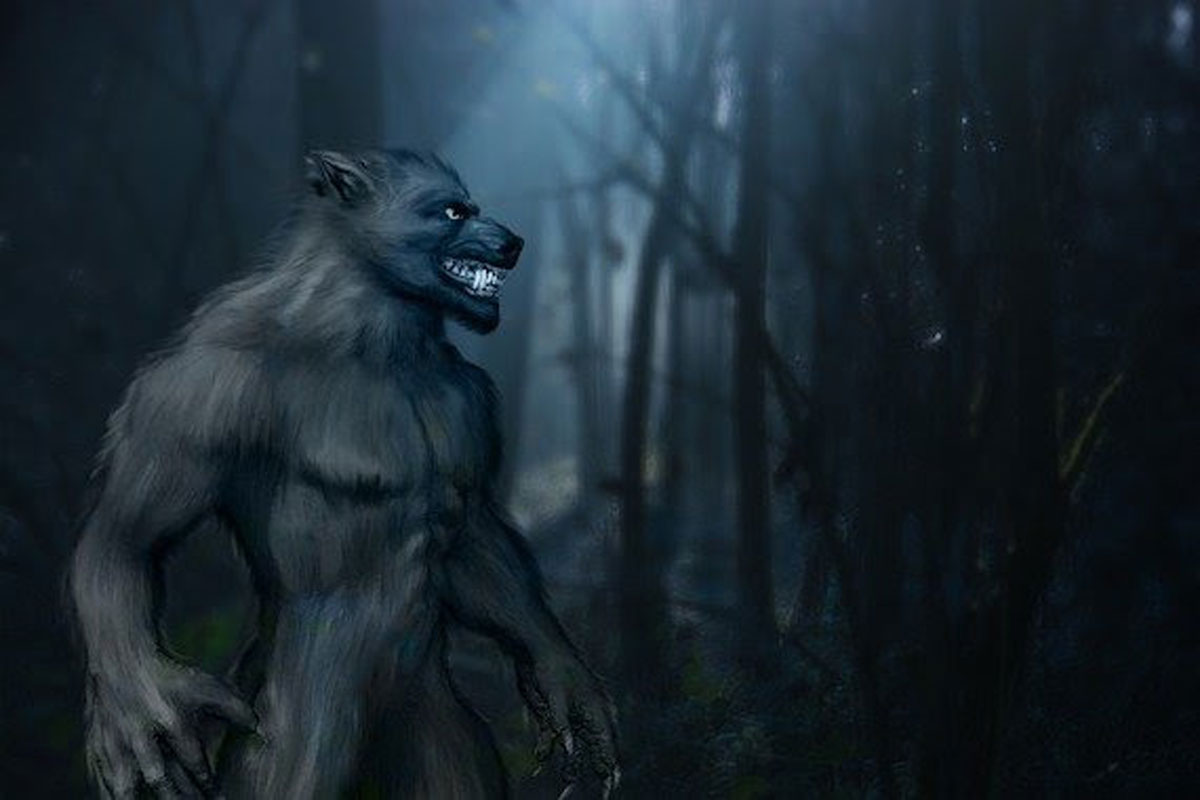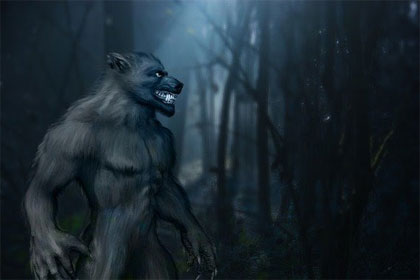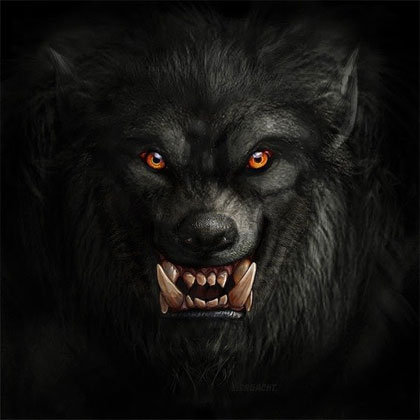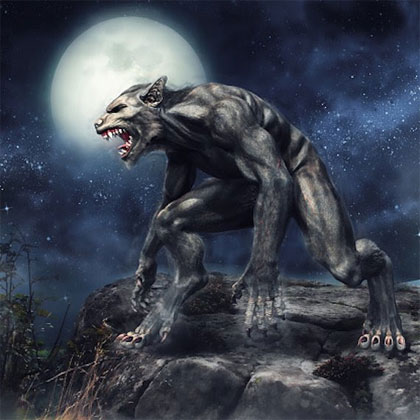
A Strange Historical Account of Werewolves in Quebec
Brent Swancer March 26, 2022
Tales of werewolves have been with us for centuries, and have appeared across the globe throughout cultures and geographical divides. It is a recurring theme throughout our lore and legends, and indeed our reality considering all of the modern day reports of such beasts. It is often hard to distinguish if such stories are true, partially true, or confined to the realm of pure myth, and one such tale comes to us from the wilds of Canada, involving a garrison of soldiers and a pack of renegade werewolves.
The strange story is set against the backdrop of the French-Canadian wilds not far from the present-day city of Sorel-Tracy, Quebec, Canada. In the early 18th century, this was a rough and rugged land, only sparsely populated with scattered settlements, a land of hunters, trappers, militiamen, and settlers always wary of the dreaded and hostile Iroquois natives. In 1706, several settlements had been under attack by fierce Iroquois warriors, who had razed villages, killed and tortured innocent people, including women and children, and to counter this scourge there was a military regiment installed at Fort Richelieu, located at the mouth of the Richelieu River, about forty-five miles below Montreal. Here the garrison distributed weapons to settlers and the friendly Abenakis tribe to defend themselves. At the time it was winter, the frigid cold freezing over rivers and lakes with a biting force almost as dangerous as the enemy. It was a turbulent time, and things were about to take a turn into the bizarre with the appearance of a new, supernatural threat.
On Christmas of that year, as festivities were going on within the fort, the barracks full of merry men drinking, singing, and telling stories, a group of four sentries were out in the cold night dutifully keeping watch outside for the ever present threat of a raid. No one gave them much thought at the time, the partying going on inside drowning out all thoughts of war and Indian attacks, but this merriment was at one point interrupted by the loud crack of musket shots outside. When the men ran to see what had happened, fully armed and expecting the worst, they found the four sentries peering off into the darkness, muskets at the ready and in an agitated state. When asked by the garrison Sergeant, the sentries said they had fired the shots to scare off “a party of red devils dancing around a bush fire” a few hundred yards from their position. Rather oddly, when asked where the Indians had gone, they replied that they seemed “to have disappeared as by enchantment.” A contingent of ten men was sent out to have a look, but they could find no footprints, no sign of a fire, nothing at all. With no sign of the mysterious intruders anywhere, the men retired once again to the barracks, quiet and somber, the merry mood soured.
 Back inside, the sentries continued to insist that they had seen those Indians out there, that they had vanished into thin air, and that they had not been drinking or seeing things. This was when an old trapper among them came forward to suggest that the men may have seen and been deceived by a pack of loups-garous, werewolves, which he claimed appeared and disappeared as they pleased and which he had seen for himself more than once in his travels out in the rugged wilds. All present turned their attention to him, curious to hear his strange story, and so there in the dancing light of the fire he wove his tale.
Back inside, the sentries continued to insist that they had seen those Indians out there, that they had vanished into thin air, and that they had not been drinking or seeing things. This was when an old trapper among them came forward to suggest that the men may have seen and been deceived by a pack of loups-garous, werewolves, which he claimed appeared and disappeared as they pleased and which he had seen for himself more than once in his travels out in the rugged wilds. All present turned their attention to him, curious to hear his strange story, and so there in the dancing light of the fire he wove his tale.
He claimed that one experience with the werewolves in particular stood out in his mind. He and a group of other trappers had been travelling along the Ottawa River and the Upper Great Lakes, stopping at a place called Grandes-Chaudieres to rest and replenish their meat supply. He and one of his companions had then gone out to do some hunting, and managed to bag a deer, which they butchered to lug its meat back to camp. Along the way, darkness began to fall and they stopped to have a break. As they sat there along the river smoking a pipe, they saw a saw a bright fire out on a small island in the river, and dancing around this fire were “ten or twelve renegades, half human and half beasts, with heads and tails like wolves, arms, legs, and bodies like men, and eyes glaring like burning coals.” At their feet was a human body that they were in the process of butchering just as the hunters had butchered that deer, all the while issuing an “infernal laughter.” It was here where their bizarre ordeal would begin, and an excerpt from the 1900 book La Chasse Galerie and Other Canadian Stories illustrates what happened next:
Although we were sitting in the shadow of the trees, partly concealed by the underbrush, we were at once discovered by the dancers, who beckoned to us to go and join them in their disgusting feast. That is the way they entrap unwary hunters for their bloody sacrifices. Our first impulse was to fly towards the woods; but we soon realized that we had to deal with loups-garous; and as we had both been to confession and taken holy communion before embarking at Lachine, we knew we had nothing to fear from them. White loups-garous are bad enough at any time, and you all know that only those who have remained seven years without performing their Easter duties are liable to be changed into wolves, condemned to prowl about at night until they are delivered by some Christian drawing blood from them by inflicting a wound on their forehead in the form of a cross. But we had to deal with Indian renegades, who had accepted the sacraments only in mockery, and who had never since performed any of the duties commanded by the Church. They are the worst loups-garous that one can meet, because they are constantly intent on capturing some misguided Christian, to drink his blood and to eat his flesh in their horrible fricots.
Had we been in possession of holy water to sprinkle at them, or of a four-leaved clover to make wadding for our muskets, we might have exterminated the whole crowd, after having cut crosses on the lead of our bullets. But we were powerless to interfere with them, knowing full well that ordinary ammunition was useless, and that bullets would flatten out on their tough and impenetrable hides. Wolves at night, those devils would assume again, during the day, the appearance of ordinary Indians; but their hide is only turned inside out, with the hair growing inward. We were about to proceed on our way to the camp, leaving the loups-garous to continue their witchcraft unmolested, when a thought struck me that we might at least try to give them a couple of parting shots. We both withdrew the bullets from our muskets, cut crosses on them with our hunting-knives, placed them back in the barrels, along with two dizaines of beads from the blessed rosary which I carried in my pocket. That would surely make the renegades sick, if it did not kill them outright.
We took good aim, and fired together. Such unearthly howling and yelling I have never heard before or since. Whether we killed any of them I could not say; but the fire instantly disappeared, and the island was left in darkness, while the howls grew fainter and fainter as the loups-garous seemed to be scampering in the distance. We returned to camp, where our companions were beginning to be anxious about our safety. We found that one man, a hard character who bragged of his misdeeds, had disappeared during the day, and when we left on the following morning he had not yet returned to camp, neither did we ever hear of him afterward. In paddling up the river in our canoes, we passed close to the island where we had seen the loups-garous the night before. We landed, and searched around for some time; but we could find no traces of fire, or any signs of the passage of werwolves or of any other animals. I knew that it would turn out just so, because it is a well-known fact that those accursed brutes never leave any tracks behind them. My opinion was then, and has never changed to this day, that the man who strayed from our camp, and never returned, was captured by the loups-garous, and was being eaten up by them when we disturbed their horrible feast.
 This story enthralled all present, who were hanging on every word of this spooky tale, and the trapper reiterated that what the sentries had seen and fired at had likely been the very same thing. This was when the sergeant stepped in to agree that these creatures likely existed, and that he had heard a tale from a corporal named Baptiste Tranchemontagne some years before, who had long served with him and had claimed to have met a female loup-garou in the Iroquois village of Caughnawaga, near Montreal during one of their expeditions on the south shore of Lake Ontario. At the time, Baptiste had met a pretty young native woman known as La-linotte-qui-chante, with the two falling madly in love and getting married not long after.
This story enthralled all present, who were hanging on every word of this spooky tale, and the trapper reiterated that what the sentries had seen and fired at had likely been the very same thing. This was when the sergeant stepped in to agree that these creatures likely existed, and that he had heard a tale from a corporal named Baptiste Tranchemontagne some years before, who had long served with him and had claimed to have met a female loup-garou in the Iroquois village of Caughnawaga, near Montreal during one of their expeditions on the south shore of Lake Ontario. At the time, Baptiste had met a pretty young native woman known as La-linotte-qui-chante, with the two falling madly in love and getting married not long after.
It would soon turn out that the squaw was insanely jealous, and this went from cute to ominous when it got worse to the point that she would threaten violence if he were to ever be unfaithful to her. One day, Baptiste was ordered away to a place called Fort St. Frederic on a campaign against the Iroquois, and when he did he would find that she had followed him there, much to his annoyance because no women or children had been allowed to accompany them. He then went off to battle for three months, and when he returned his wife was gone and when he could not find her he reasoned that she had given up on him and left him. Baptiste wasted no time in finding another young woman, and he was so smitten that he left the service, got engaged to her, and moved on with his life. It must have been quite a shock when one day he was with his new fiancé and came across La-linotte-qui-chante in a marketplace in Montreal. By this time, he had not seen her in 6 months, and it was an awkward situation to say the least. She explained that she had stopped by to drop off some furs, and then left without another word, casting a baleful gaze at him and his new lover as she left. Although slightly shaken and annoyed, Baptiste tried to put this odd chance encounter out of his mind and focus on his coming wedding. It was meant to be a happy time for him and the beginning of a bright future, but there were dark clouds ahead.
Ten days before the big event, his fiancé suddenly and violently fell ill. As he went off to fetch a doctor, he was surprised to see La-linotte-qui-chante standing at a crossroad along the way, merely staring off at him before disappearing into the night. This put Baptiste immediately on guard because surely this had to be more than coincidence. When the doctor arrived, it was found that the new fiancé had come down with small pox, which in those days would have been tantamount to a death sentence. As they tended to her, one evening Baptiste was horrified to find La-linotte-qui-chante casually sitting in his living room as if she had every business in the world to be there. When he asked what she wanted, she told him that she was there to help, and that she could procure a potion from a village medicine man to save his beloved. All he had to do was meet her at midnight and she would give him the potion without question. She then left without another word to leave him standing there astonished and not a little unsettled. The sergeant telling the story would say of what happened next:
Shortly before midnight Baptiste took his musket and went out to the rendezvous. He had been waiting for some time, and was getting impatient, when he heard a noise behind him, and in turning round perceived a pair of eyes glaring at him from a small distance in the underbrush. It could not be the squaw, and he supposed that it was some wild animal prowling about, probably a bear, a wolf, or a wild-cat. He instinctively shouldered his musket, and although he could not take a good aim in the dark, he fired, missing the beast, who sprang at him with a terrible growl. It was a wolf of enormous size, and for the first time Baptiste thought of a loup-garou. He was too well accustomed to danger to lose his presence of mind, and throwing his empty musket in the snow, he seized his hunting-knife, and made a lunge at the beast; but the blade bent on the hide of the animal as if it had been thrust into the side of sole-leather. Baptiste now bethought himself of the only way of getting at the wolf, by drawing its blood in cutting a cross in its forehead. The wolf seemed to realize the fact, and fought at paw’s length with its powerful claws, tearing Baptiste’s flesh into shreds, and trying to strike at his face so as to blind him, if possible, while keeping its own head out of the reach of the gleaming knife. The fight had lasted for some time, and Baptiste was getting exhausted, when by an adroit stroke of his weapon, always as sharp as a razor, he completely cut off one of the fore paws of the animal, who uttered a terrible yell resembling the scream of a woman, and fled through the woods, where it disappeared in an instant.
Baptiste now understood the situation in a moment. La-linotte-qui-chante, who had been baptized and duly received in our holy religion, having afterward relapsed into idolatry, had been turned into a loup-garou, condemned to roam by night, while keeping her usual appearance during the day. Jealousy and revenge had induced her to attack her former lover, hoping to take him unawares, and to kill him in the woods, while his new love was lying on her death-bed, a victim to the terrible scourge that the squaw had brought to the house. Baptiste learned that La-linotte-qui-chante had been a frequent visitor for some time past, having succeeded in ingratiating herself with the poor dead girl, undoubtedly bringing to her the germ of the disease that was raging at the Indian village. Such was the savage revenge of the young squaw to punish the faithlessness of Baptiste to his former vows of love and affection. It was also learned afterward that a human arm, evidently that of an Indian woman, had been found in the snow by some children who had strayed in the woods, at the very spot where the fight had taken place between Baptiste and the loup-garou. It was undoubtedly the fore paw of the wolf, which had resumed its former shape as the arm of the renegade squaw.
 After this, things would not go well for Baptiste. He would be captured by the Iroquois, tortured with red hot tongs, and burned alive. The sergeant then concluded that one of those who helped to kill his friend was La-linotte-qui-chante, and that he believed the werewolf threat to their fort was very real. The sergeant finished his harrowing tale by saying:
After this, things would not go well for Baptiste. He would be captured by the Iroquois, tortured with red hot tongs, and burned alive. The sergeant then concluded that one of those who helped to kill his friend was La-linotte-qui-chante, and that he believed the werewolf threat to their fort was very real. The sergeant finished his harrowing tale by saying:
One of the prisoners who escaped from the redskins, and returned to Montreal, told me that he had remarked a one-armed squaw, who seemed to take special pleasure in inventing the most abominable devices to add to the sufferings of poor Baptiste. It was she who pulled out his tongue by the root, and who crushed in his skull with a tomahawk when he fainted from pain and loss of blood. Now, this is a real loup-garou story that I can vouch for, and that I would not permit any one to gainsay; and I now would call your attention to the fact that I will order the curfew to be sounded, and that I shall expect every one of you to be snoring at the bugle-call, so as to observe the rules of this garrison.
The story ends there, with no word on the resolution of all of this, or what those men encountered out in the wilds. This old tale has apparently floated around in Quebec lore for some time, and there is no knowing whether there was ever any truth to it or if is is pure legend and myth. Is there anything to this story, or is it just lore and legend? Whatever the case may be, it is a damn fine werewolf tale all the same.
MU*


















